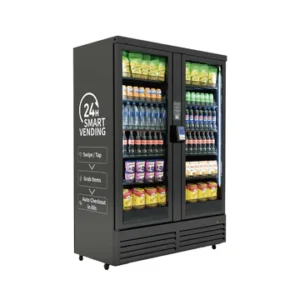Whether you’re a first-time landlord or an experienced property investor, property management Hamilton ON plays a vital role in the success of your real estate investments. From handling tenants and maintenance to ensuring your property remains profitable, effective property management is key to maximizing returns and minimizing stress.
In this ultimate guide, we’ll walk you through the essential tips for property management and explain the crucial tasks that a property manager handles, giving you insights on how to streamline your processes and make informed decisions.
1. What is Property Management? Why Does It Matter?
At its core, property management refers to the operation, control, and oversight of real estate properties on behalf of the owner. A property manager is a professional who takes care of the day-to-day responsibilities involved with managing rental properties, ensuring that both the owner’s and tenant’s needs are met efficiently.
For landlords and investors, property management can mean the difference between a smoothly running investment and one that’s plagued by issues. Without effective management, you could face high vacancy rates, tenant disputes, legal problems, or even financial losses.
2. When Should You Consider Hiring a Property Manager?
While some landlords prefer managing their properties themselves, others may find it overwhelming. So, when is it time to bring in a property manager?
Here are a few signs that hiring a property manager might be a smart move:
• You Own Multiple Properties: Managing several properties can be time-consuming. A property manager helps streamline operations across your portfolio.
• You Lack Local Market Knowledge: A property manager is familiar with local rental laws, tenant expectations, and the best pricing strategies for your area.
• You Don’t Have Time: If managing your property takes time away from your primary business or personal life, hiring a property manager frees you up.
• You Have No Interest in Tenant Management: From handling complaints to addressing maintenance requests, dealing with tenants is not for everyone. A property manager can take on this responsibility.
Hiring a property manager allows you to take a hands-off approach while ensuring your property runs smoothly.
3. Key Responsibilities of a Property Manager
A property manager takes on numerous responsibilities to ensure the success of your rental property. Below are the most important tasks they handle:
Tenant Acquisition and Screening
One of the first and most crucial tasks for any property manager is finding the right tenants. They are responsible for:
• Advertising Your Property: Creating listings, hosting open houses, and marketing the property to attract potential tenants.
• Screening Tenants: A property manager conducts background checks, credit checks, and interviews to ensure your tenants are reliable and financially stable.
The goal is to find long-term, responsible tenants who will pay rent on time and take care of the property.
Rent Collection and Financial Management
A property manager ensures that rent is collected on time and handles financial management for you. Their duties include:
• Rent Collection: Establishing clear terms for rent payments and following up with tenants who miss payments.
• Handling Late Fees: If tenants don’t pay on time, a property manager ensures that late fees are enforced according to the lease agreement.
• Financial Reporting: A property manager provides detailed reports, making it easier for you to track income and expenses for tax purposes.
4. Tips for Effective Property Management
Effective property management can make your life as a landlord much easier and more profitable. Here are some top tips for managing your property or working with a property manager:
a. Set Clear Expectations from the Start
When you bring a property manager on board, set clear expectations regarding their responsibilities. Discuss everything from rent collection procedures to maintenance requests. By establishing a solid communication channel from the outset, you’ll avoid misunderstandings later on.
• Discuss Fees: Be sure to agree on a fee structure. Some property managers charge a flat rate, while others take a percentage of the rent collected. Understand exactly what’s included in the fee.
• Clarify Maintenance Procedures: Ensure that you and your property manager are on the same page when it comes to handling regular maintenance or emergency repairs.
b. Know Your Property’s Market Value
Whether you are managing your property or working with a property manager, understanding your property’s market value is crucial to maximizing your investment. Ensure that rent is priced competitively based on the local rental market.
Market Research: Keep an eye on rental prices for similar properties in the area. A skilled property manager will use market data to adjust pricing, ensuring your property remains profitable.
c. Prioritize Maintenance
Regular maintenance is essential to preserving your property’s value and keeping tenants satisfied. A property manager should have a process for handling maintenance requests efficiently.
• Conduct Regular Inspections: Regularly inspect the property for wear and tear, and address issues before they escalate.
• Prompt Repairs: When tenants request repairs, ensure that issues are resolved quickly to avoid costly damage in the future.
Good maintenance helps retain tenants and minimizes vacancies.
5. How to Choose the Right Property Manager
Choosing the right property manager is a crucial decision. The right manager will take care of your property while you enjoy the benefits of passive income. Here are some tips for selecting the best property manager:
• Check Experience and References: Ask for references from other property owners and review the manager’s experience with properties similar to yours.
• Evaluate Their Communication: The right property manager should be responsive and clear in their communication with you and your tenants.
• Verify Their Legal Knowledge: Ensure your property manager is well-versed in local landlord-tenant laws and fair housing regulations.
6. Technology and Tools for Modern Property Management
In today’s digital age, property management has evolved. Many property managers use specialized tools and software to streamline operations. Here are some technologies to look for:
• Online Rent Payments: Modern property management platforms allow tenants to pay rent online, making the process faster and more efficient.
• Tenant Portals: These portals allow tenants to submit maintenance requests, access payment history, and more.
• Maintenance Management Tools: Many platforms help property managers track maintenance tasks, communicate with vendors, and ensure timely repairs.
Conclusion
In conclusion, property management is essential for anyone who owns rental properties. Whether you choose to manage your property yourself or hire a professional property manager, understanding the key responsibilities and best practices will help you optimize your investment.
By following the tips in this guide, setting clear expectations, and choosing the right property manager Hamilton ON, you can ensure your property remains profitable and your tenants are happy. Whether you’re just starting out or have an established portfolio, mastering property management will allow you to take your investment to the next level.





More Stories
Party Strippers in Scottsdale: Your Guide to the Best Scottsdale Party Strippers
Vending Machine for Sale: Your Complete Guide to Starting a Profitable Vending Business
Everything You Need to Know About Fire Insurance in Stamford, CT for 2026